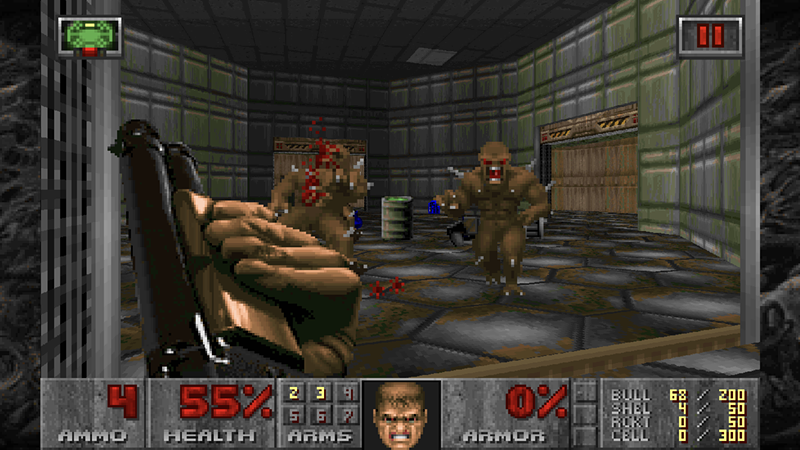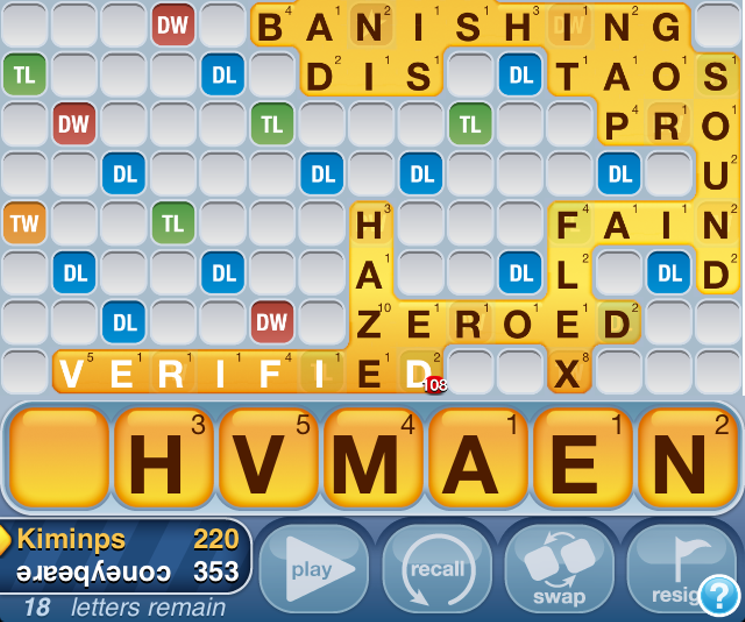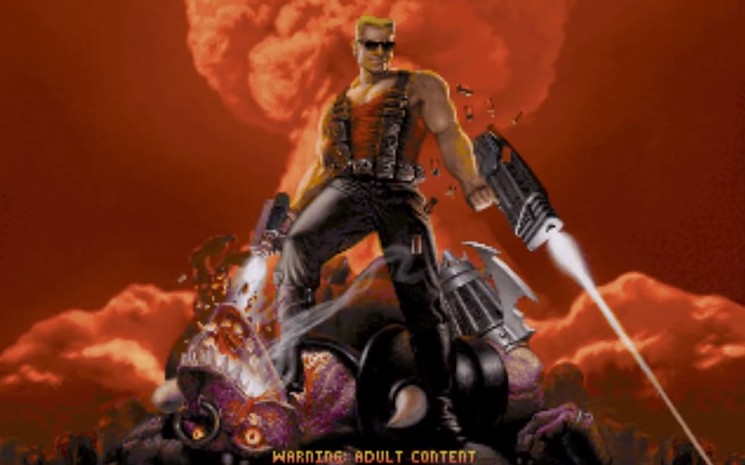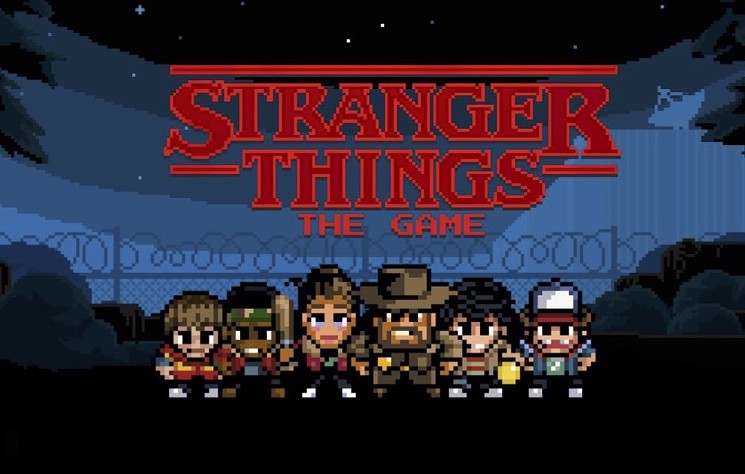Silicon Valley may be the world's most famous hub for technology and digital entertainment development, but it wouldn't be where it is without the groundbreaking games that came out of North Texas.
Dallas-Fort Worth fueled the video game industry's rise to rival the film, TV and music industries' combined revenue. Studios and developers across North Texas developed titles and franchises that set new standards for what video games should be and are still being played on modern computers and consoles.
This didn't just happen across one period of time 20 years ago when computers weren't advanced enough to have a graphic interface. Heavy hitters like iD Software, Gearbox Software and others continue to make top selling games that will become classics.
So while we're still in the shadow of National Video Game Day, here are just handful of the greatest games produced in our pixelated backyard.
1. DOOM
Gaming today wouldn't be as challenging, violent or fun without this ground and spine-breaking first person shooter.
DOOM didn't just make a game market for more mature players; its mix of heavy violence, heavy weaponry and heavy metal continues to inspire generations of game makers. The first game made from Id Software's Mesquite studios put players in the blood-stained boots of a space marine called "Doomguy" who's trapped on an abandoned Mars colony occupied by demonic forces from hell.
The legendary arsenal of high-caliber weapons included a shotgun, a chaingun, a plasma rifle and the infamous BFG (aka the Big Fucking Gun), and the action is punctuated by a pulse-pounding metal soundtrack. The game spawned four sequels, the most recent of which is this year's DOOM: Eternal which helped fans celebrate the franchise's 25th anniversary.
2. Words with Friends
No one could have predicted in the early 2000s, when it took at least five minutes to just send someone an "LOL" text, that mobile gaming would become so lucrative. The release of Apple's iPhone in 2007 introduced a touchscreen device that was made for mobile gaming.
One of the smartphone's first and biggest hits came from a small studio in McKinney called NewToy founded by brothers Paul and Michael Bettner and their cousin Michael Chow. They were among the first to recognize the phone's ability to facilitate communication for gaming and actually pit players across the world against each other using turn-based play.
They started with a simple chess game called Chess With Friends in 2008 that caught the industry's attention, but they became mobile gaming mavens the following year with a variation of Scrabble called Words With Friends. Players could take turns spelling words with letter tiles on a crossword board for points. Its accessibility and addictive gameplay could reach players of all ages, making it one of the first top-selling mobile games on Apple's iTunes store. Words With Friends' popularity spawned many copycats within the new genre of micro turn-based mobile gaming.
3. Duke Nukem 3D
This first-person shooter franchise may have become infamous for its troubled history of development and legal hangups, but the alien ass kicker's first foray into three-dimensional territory brought the medium to a new level.
3D Realms of Garland, originally called Apogee Software, created a cocksure Earth defender named Duke Nukem for a series of sidescrolling action games. The success of DOOM and other first-person shooters inspired 3D Realms to put its 'roided up hero in first-person mode using its new Build engine. It was one of the first games of its kind to add personality and humor to the gameplay as the titular character spouted kill lines, ogled scantily clad women and interacted with objects and environments in the virtual world through crude humor. The levels were laid out like complex puzzles and the combat came with a creative array of weaponry like pipe bombs, a multi-rocket launcher called "The Devastator" and a shrink ray that let you step on your enemies with your mighty boot.
4. Age of Empires
The defunct Ensemble Studios also created a new niche of strategy titles by combining the warfare from games like Warcraft and Command & Conquer with historical themes and world building from titles like Sid Meyer's Civilization.
Players would build massive empires and military forces to protect them, ranging from the Stone to the Iron Age. During its initial release, Age of Empires offered some of the deepest and most complex gameplay for just about any strategy game on Comp-USA's CD-ROM shelves. The game even offered multiple single and multiplayer modes and a scenario builder for players who mastered the game's complex campaigns. Age of Empires elevated the strategy game genre from mindless warfare to deep, strategic experiences that required complex planning and resource management. It's like someone took one of those board games that requires painted miniatures and three days off from work to play and crammed it onto a computer.
5. Wolfenstein 3D
This World War II historical fiction-infused shooter from iD Software is considered the granddaddy of first-person shooters. There would be no DOOM or Duke Nukem 3D or a never-ending supply of Call of Duty games without Wolfenstein 3D (try not to put too much blame on Wolfenstein 3D for the latter).
Apogee and iD's Software first foray into the first-person shooter genre produced a pixelated action game that put players in the bloody combat boots of William Joseph "B.J." Blazkowicz, who's trapped behind enemy lines in the German stronghold of Castle Wolfenstein and will have to blast his way out through an endless wave of Nazi scum using a small but effective arsenal of weapons including a knife, a pistol, a machine gun and the bullet spewing chaingun. The game forces players to navigate complex mazes on each level — littered with enemies, supplies and even a mechanized Hitler boss. Wolfenstein 3D was one of the first shooters to use the Sound Blaster sound card that replaced the usual beeps and boops with digitized sounds of German soldiers screaming in pain as you litter their carcasses with hot metal.
6. Borderlands
Funny games were relegated to party games like You Don't Know Jack and adventure titles like the Leisure Suit Larry series. Putting comedy in an action title was almost unheard of until Gearbox Software's quirky, violent role-playing shooter first hit the consoles in 2009.
This post-apocalyptic first-person shooter felt like a mix between Mad Max and a Douglas Adams novel. The game contained brilliant comedy writing delivered by unique characters, most notably the wise-cracking, unicycled drone Claptrap. There was just as much focus and care on the gameplay. Players could build and upgrade their weapons and characters just like a fighter in a role-playing game. The action is punctuated in between those moments with challenging shooter action, world exploration and a comic book art style. It's so good that fans have been willing to look past Gearbox's other gaming mistakes to devour two more sequels and a Telltale interactive story title.
7. Ghostbusters: The Video Game
It took the video game industry more than 30 years to release a playable Ghostbusters game, something that should have been a no-brainer for a movie that's literally about shooting ghosts with a giant laser gun. Dallas' Terminal Velocity studio finally got it right with 2009's third person action game Ghostbusters: The Video Game.
The game had plenty of potential before the coding even started since it was written by the film's original writers and stars Dan Aykroyd and Harold Ramis as a third film in video game form. The game also starred the entire original cast including Ernie Hudson, Bill Murray and even William Atherton as the short-tempered William Peck. Still, the game almost didn't get a release until a leaked video of the play test showing the Ghostbusters-fueled combat forced a developer to put it on the shelves. Players controlled a silent and unnamed new recruit to the Ghostbusters team — who's basically brought on to test Egon Spengler's equipment in the field. It's not just the Ghostbusters game that the movie's many fans deserved to play for years. Ghostbusters: The Video Game offered a funny story using the movie world's many recognizable characters including a showdown with the infamous Stay Puft Marshmallow Man, challenging combat using the film franchise's arsenal of positron flingers and even an addictive, ghost-catching multiplayer mode that needs to be added to the game's recent remastered edition.
8. Stranger Things: The Game
Ninety nine percent of games based on movies and TV shows suck out loud. The majority of them are just franchised properties rushed to release to cash in on some pop culture media fad before it falls into the canyon of nostalgia. Allen-based BonusXP took its time to make a throwback style game based on the first season of Netflix's wildly popular Stranger Things and produced one of the deepest and most complex mobile games of all time.
BonusXP's game retells the story of the horror adventure show's first season in the form of an 8-bit adventure game for a mid-1980s console. Players can control all of the show's main protagonists using their unique weapons and abilities to uncover secrets and defeat enemies in an adventure that re-creates the fabled town of Hawkins, Indiana. The game plays like something a group of very dedicated fans would produce. The first and subsequent Stranger Things games released around the start of the shows' new seasons does so much with so little to produce something that's so much fun.
[
{
"name": "Air - MediumRectangle - Inline Content - Mobile Display Size",
"component": "18855504",
"insertPoint": "2",
"requiredCountToDisplay": "2"
},{
"name": "Editor Picks",
"component": "17105533",
"insertPoint": "4",
"requiredCountToDisplay": "1"
},{
"name": "Inline Links",
"component": "18349797",
"insertPoint": "8th",
"startingPoint": 8,
"requiredCountToDisplay": "7",
"maxInsertions": 25
},{
"name": "Air - MediumRectangle - Combo - Inline Content",
"component": "17105532",
"insertPoint": "8th",
"startingPoint": 8,
"requiredCountToDisplay": "7",
"maxInsertions": 25
},{
"name": "Inline Links",
"component": "18349797",
"insertPoint": "8th",
"startingPoint": 12,
"requiredCountToDisplay": "11",
"maxInsertions": 25
},{
"name": "Air - Leaderboard Tower - Combo - Inline Content",
"component": "17105535",
"insertPoint": "8th",
"startingPoint": 12,
"requiredCountToDisplay": "11",
"maxInsertions": 25
}
]















